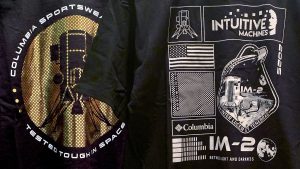The Trump administration won’t be able to follow through on all its plans to crack down on diversity, equity and inclusion programs after a federal judge temporarily struck down parts of the president’s executive orders.
The nationwide injunction, handed down Friday evening, blocks the administration from terminating “equity-related” grants or contracts and investigating universities with endowments worth more than $1 billion, among other provisions in two executive orders that targeted a range of programs, grants and contracts that the Trump administration considers “illegal” DEI. But the orders didn’t define DEI or what “equity-related” meant, which made it difficult for contractors or grant recipients to know how they could comply with the directives, plaintiffs argued in the lawsuit.
The language related to canceling equity-related grants was too vague and invited “arbitrary and discriminatory enforcement,” wrote U.S. District Judge Adam B. Abelson, who was appointed by former president Joe Biden. “The possibilities are almost endless, and many are pernicious.”
Trump made eliminating diversity a priority in his first month in office. His administration has fired numerous employees in DEI offices, canceled millions in grants and most recently told colleges and K-12 schools to end race-conscious spending, activities and programming or risk their federal funding. The two executive orders challenged in the lawsuit are at the center of plans to crack down on DEI.
But for now, the Trump administration won’t be able to launch investigations of wealthy colleges as part of an effort “to deter DEI programs or principles,” as ordered in the Jan. 21 executive order. Another blocked provision required federal contractors to certify that they didn’t operate any DEI programs that violate federal antidiscrimination laws.
The American Association of University Professors, the National Association of Diversity Officers in Higher Education and other groups argued in the lawsuit filed earlier this month that because the order doesn’t offer any criteria for the investigations, colleges “are left with only fear to guide their determinations of what activities, programs, and principles will render them a target.”
“The only sure way to avoid unwarranted harm is for Plaintiff NADOHE’s relevant institutional members to censor their own speech,” the lawsuit said.
Abelson agreed that the threat of investigations amounts to “an unlawful viewpoint-based restriction on protected speech.”
“That is textbook viewpoint-based discrimination,” he added. “The government’s threat of enforcement is not just targeted toward enforcement of federal law. Rather, the provision expressly targets, and threatens, the expression of views supportive of equity, diversity and inclusion—a ‘particular view taken by speakers.’”
Lawyers for the government contend that companies don’t have a First Amendment right to discriminate, but Abelson wrote “the government does not know what constitutes DEI-related speech that violates federal antidiscrimination laws,” and the orders don’t offer guidance or notice about what is considered “‘illegal’ DEI.”
The Trump administration can appeal the decision to the Fourth Circuit of the U.S. Court of Appeals.









